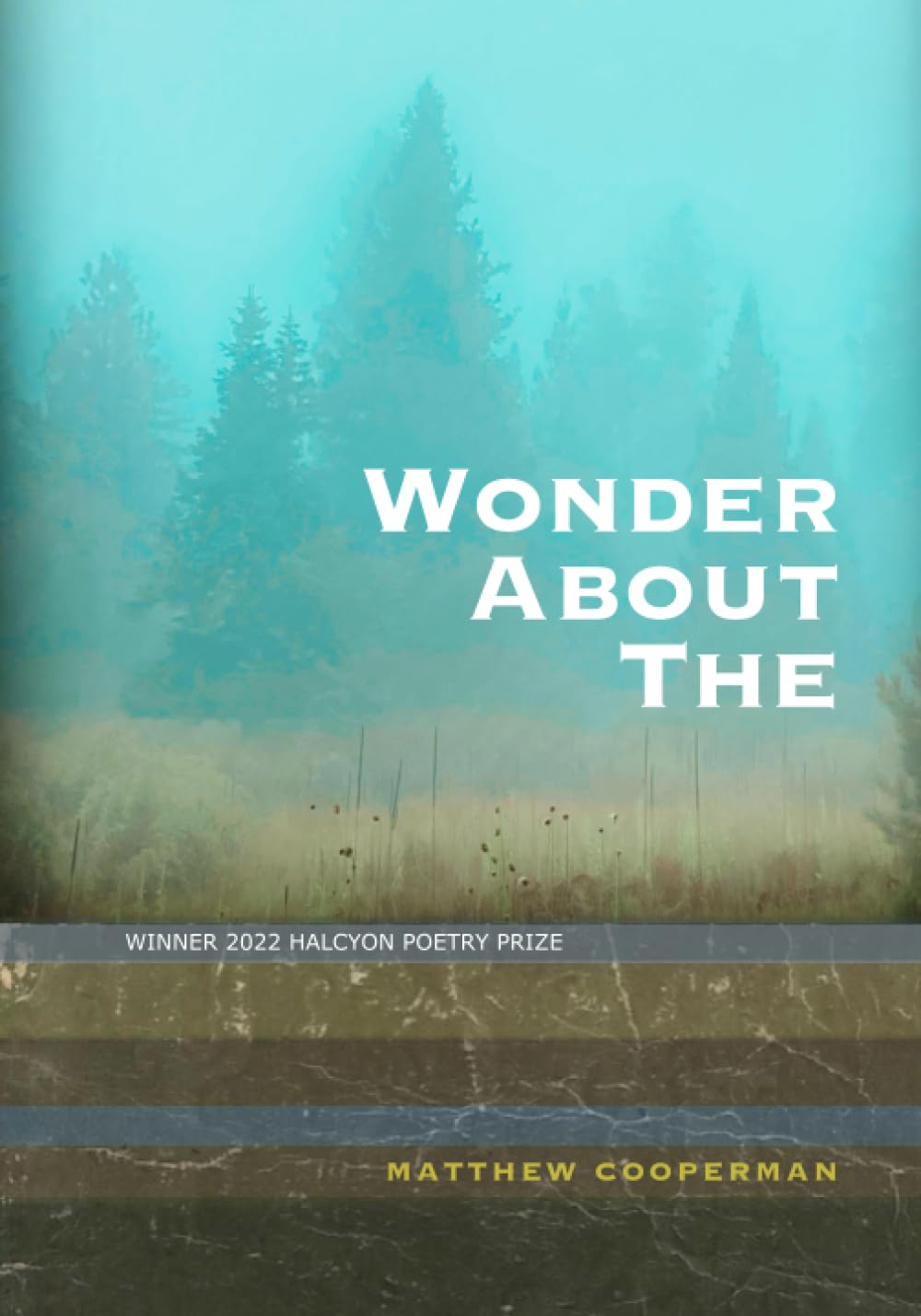Matthew Cooperman
Middle Creek Publishing ($18)

by Joe Safdie
A reader of Matthew Cooperman’s latest collection, Wonder About The, might “wonder about” its seemingly fragmented title. Ostensibly a portrait of the expansive biodiversity that can be found on the banks of the Cache la Poudre River in Colorado, Matthew Cooperman’s Wonder About The also explores fracking, the distance between culture and nature, and the peculiar problems of poems devoted to ecology and the environment. On that last subject, Forrest Gander poses some useful questions in his 2008 essay titled “What Is Eco Poetry”:
Aside from issues of theme and reference, how might syntax, line break, or the shape of the poem on the page express an ecological ethics? If our perceptual experience is mostly palimpsestic or endlessly juxtaposed and fragmented; if events rarely have discreet beginnings or endings but only layers, duration, and transitions; if natural processes are already altered by and responsive to human observation, how does poetry register the complex interdependency that draws us into a dialogue with the world?
The “interdependency” Gander mentions is very much a concern of Wonder About The; from the beginning, it’s clear that this book doesn’t offer any sort of lazy propaganda. In the first poem, “Thesis,” lines such as “It rolls on as sugar beet, sweet in its labor and sweat in its weight” show Cooperman paying attention to the sounds of his words as well as to the indomitable river. In this expansive vision, humans aren’t separate from their environment, but are charged with the task of striking a balance between how things appear and how we, in turn, are located within the appearance—or as Cooperman puts it in “Another River in Spring” in lines that well represent the exchanges between inner and outer life throughout the book: “what marks the site of your sight // who walks through the door of a river.”
One major concern of ecopoetry is, as critic Nassrullah Mambrol writes, “how the human is situated within its habitat, specifically where (or whether) borders exist between body and world, human and other, space and place.” The peculiar art of perceiving the environment is often a subject of Wonder About The, whether it’s acknowledging that a farmer’s “bright Deere” is “a part of / the field’s design” or the urgent command, presented in progressively larger type, to “look up / look up / look up.” Eyes, in fact, are mentioned often, from “the sense record” being visited “upon our eyes / our ears” to a hard-earned vision of a waterfowl:
my winter eye
unlayers all frost
anneals what distance
takes
rank glorious muck
rot palimpsesting rye
the duck
the living eye
Cooperman’s eye is sensitive enough also to register the fact that “the number of active oil and gas wells in Colorado almost doubled from 22,228 in 2000 to 43,354 in 2010” while explaining what’s really at stake:
frack is a word to obtain a thing
gas body or oil body
by liquefaction say water various solvents
an exchange body replacement earth
toxic metonomy the force of
forces engineers making a new earth writing
In these contexts, the collection’s fragmented title might signal that such unnatural phenomena—“benzene earth man / now embowered with / salt and sand”—challenge traditional grammar’s ability to comprehend or explain them, though it also heeds the dreamier nature of observation, given its provenance from a poem by Theodore Enslin (which Cooperman uses as a section epigraph): “wonder about the / dream a dream’s about wonder will be.”
In his magisterial 2004 study A New Theory for American Poetry, Angus Fletcher posited that “environmental sensitivity demands its own new genre of poetry” and argued that environment poems “are not about the environment, whether natural or social, they are environments.” The inclusion of stunning color photographs of various places the book chronicles, most taken by Cooperman himself, makes it clear that Wonder About The not only adds to those environments, but breaks new ground.
Rain Taxi Online Edition Spring 2024 | © Rain Taxi, Inc. 2024
